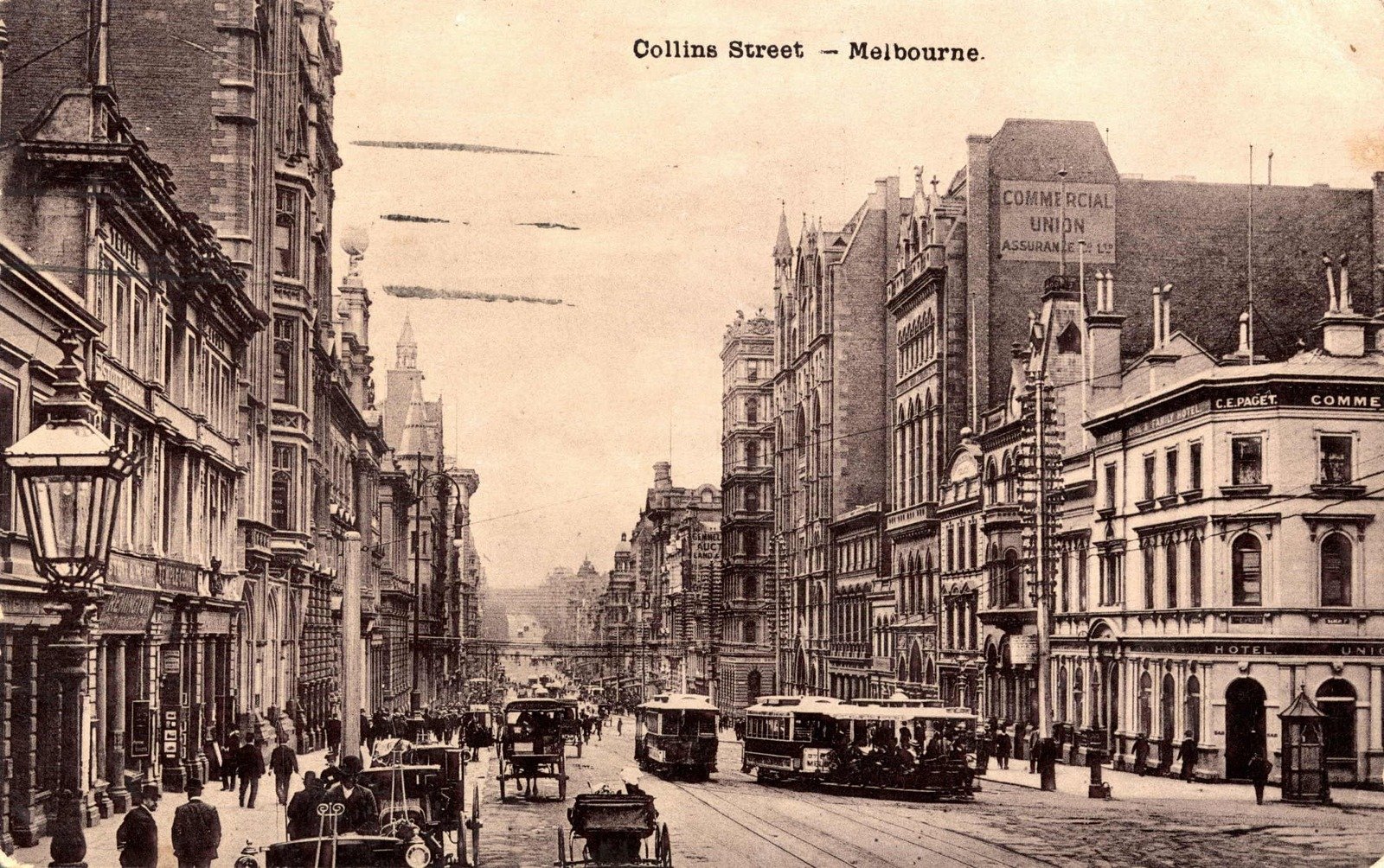
Ithacan Businesses in Australia
Retracing a lost economy and recording stories
One of the longest ongoing projects of the Ithacan Historical Society undertakes to record the histories of former businesses established in Australia (particularly Melbourne) by Ithacan immigrants from the late 19th century into the 20th.
This initiative seeks to preserve these stories for future generations, not merely to chronicle the economic and cultural contributions of the Ithacan community, but also to add colour to the history of Australian and Melburnian economic life.
Many of these stories were recounted by George Paxinos in the centenary publication produced by the Ithacan Philanthropic Society together with the IHS, The Ithacans (2016). The book is available in our bookstore.
Spot Cafe, Mildura (ca. 1925)
Ithacan migrants and Australian prosperity
In the early 20th century, Ithacan migrants in Australia, particularly in Melbourne, experienced notable economic prosperity, particularly through opening successful small businesses in the growing urban centre.
Hardworking and entrepreneurial, they contributed significantly to the city’s economic growth, laying the foundation for a thriving Ithacan community and fostering a legacy in several industries, particularly in hospitality.
The negative reception awaiting the Greek newcomer had a profound effect on their perceptions of the new land as recorded in the reasonably articulate correspondence between one of the founding members of [the Ithacan Philanthropic Society] D. E. Kolyvas, domiciled in Newcastle at the time of writing, and his brother Niko in Ithaca. The following letter is dated 19/11/1901:
The difficult first years
“Dear brother Niko, …
Australia is for opportunists, drifters. Moreover, there is no Australia as such, just a place of hard work, which not only calls for economies but also sacrifices or else nothing is gained. Note that we are unable to work at anything but oyster bars and fruit shops; jobs that are shunned by the British. They are occupations that might yield 200 pounds one year and only fifty another. One might work for fifteen or twenty years at such jobs without acquiring any profit or peace of mind. The British regard us as less than human, not even as worthy as dogs. …
Your brother Dimitrios E. Kolyvas.”
Excerpts from G. Paxinos, The Ithacans (2016), p. 50
Early businesses, anti-Greek prejudice and violence
‘Greeks in Australia were regarded with extreme suspicion at the outset of WWI because the Queen of Greece was the Kaiser's sister.
The 'Secret Census' of 1916, was undertaken with the purpose of establishing who among the Greeks were royalists and pro German, and who were Venizelists and pro British. … the census inadvertently provides a convenient, if incomplete, snapshot of the Greeks active in business in Victoria at this pivotal time in our settlement history. …
Those suspicions that placed all Greeks under government surveillance took on a more malevolent expression in unofficial circles. Fuelled by a passionately expressed anti foreign patriotism, Australian soldiers and their sympathisers considered all non British-Australians as enemy aliens, and, fortified with alcohol, responded accordingly. The anti Greek sentiment that erupted at the Kalgoorlie riots caused many Ithacans to relocate.’
‘As can be imagined the greatest number of premises targeted belonged to Ithacans.
In Kalgoorlie serious damage was done to a Paizis business, Zervos's Railway Fruitshop and Strand Cafe, the Parisian Cafe of Pyros (sic) Karpouzis, A. Drakopoulos' Belgian Fruit Shop, Spyro Black’s Fish and Oyster saloon, Florence's soft drinks shop, Stamelatos’ tobacconist's and Thomas Metaxas' Post Office Cafe. Thomas had been brought out by his brother Ioannis, who had been in Kalgoorlie since 1902.’
‘While no violence against Greek shops was recorded in Melbourne, Adelaide and Hobart, violent attacks on Greek shops in Kalgoorlie, Boulder, Perth, Brisbane, Newcastle and Sydney were carried out to devastating effect.’
Excerpts from G. Paxinos, The Ithacans (2016), pp. 56–7
Watch a lecture on the ‘Secret Census’ of Greeks in 1916 by Dr Yianni Cartledge & Prof Andrekos Varnava
Bill Florence (Florias) standing behind the counter of his Quality Lunch Service located at 3 Manchester Lane off Collins Street which he ran from 1937-70.
Under construction.
We’re busy working to build this page with more stories.
Check back soon.




